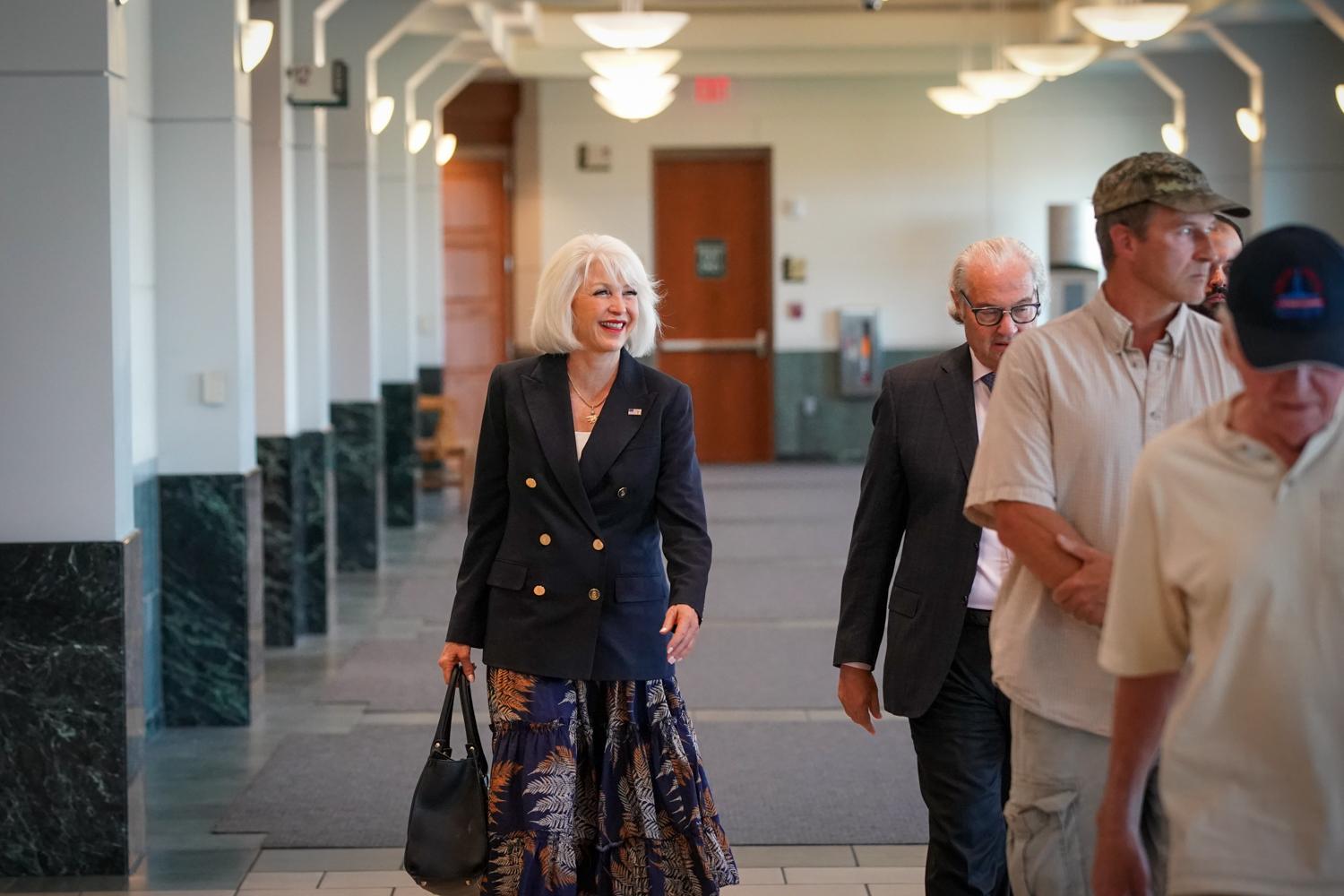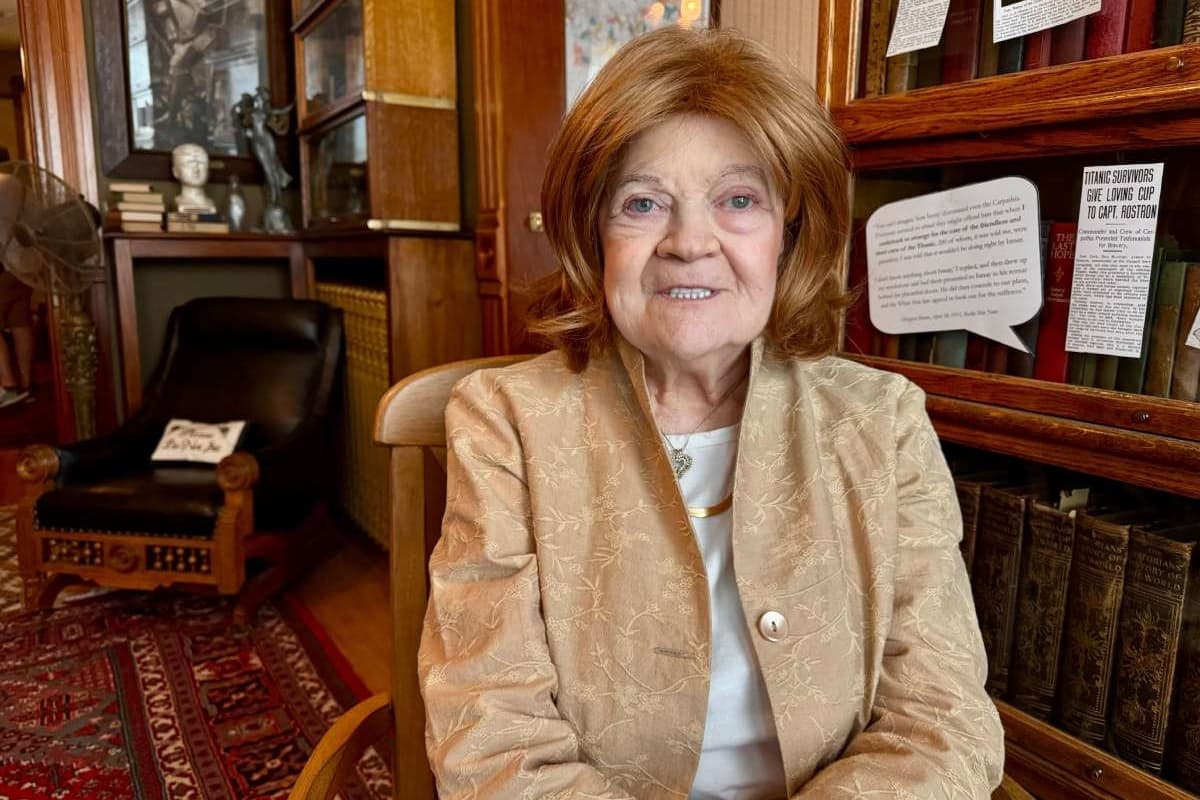
Helen Benziger’s family wasn’t one to brag about their famous forebear. Which is why Benziger didn’t learn her great-grandmother was Titanic survivor Margaret “Molly” Brown until seeing a certain movie musical as a girl in 1964.
“My mother took us to ‘The Unsinkable Molly Brown’ with Debbie Reynolds. We were sitting in the theater watching this movie and I was just absolutely enthralled with this woman,” said Benziger during a recent visit to Denver’s Molly Brown House Museum.
“My mother put her arm across us. There were four of us [kids] and she said, “By the way, that’s your great-grandmother.”
Benziger grew up to become a historian specializing in her indomitable relative and contends Margaret would have gone down with The Titanic had she been able.
Benziger spoke with Colorado Matters Senior Host Ryan Warner during a recent visit to Denver to celebrate Margaret’s birthday and to pore over family letters the museum has acquired.
This interview has been edited for length and clarity.
Ryan Warner: We are speaking on your great-grandmother's birthday, July 18th. How did she influence your own path?
Helen Benziger: Margaret had a great impact on my life. I never met her, and I don't know how this is possible, but I adore her. I love her from the bottom of my heart. She taught me resilience, determination, and empathy. And I will forever be grateful because it's gotten me through a number of very hard times. I talk to Margaret and I get strength from that.
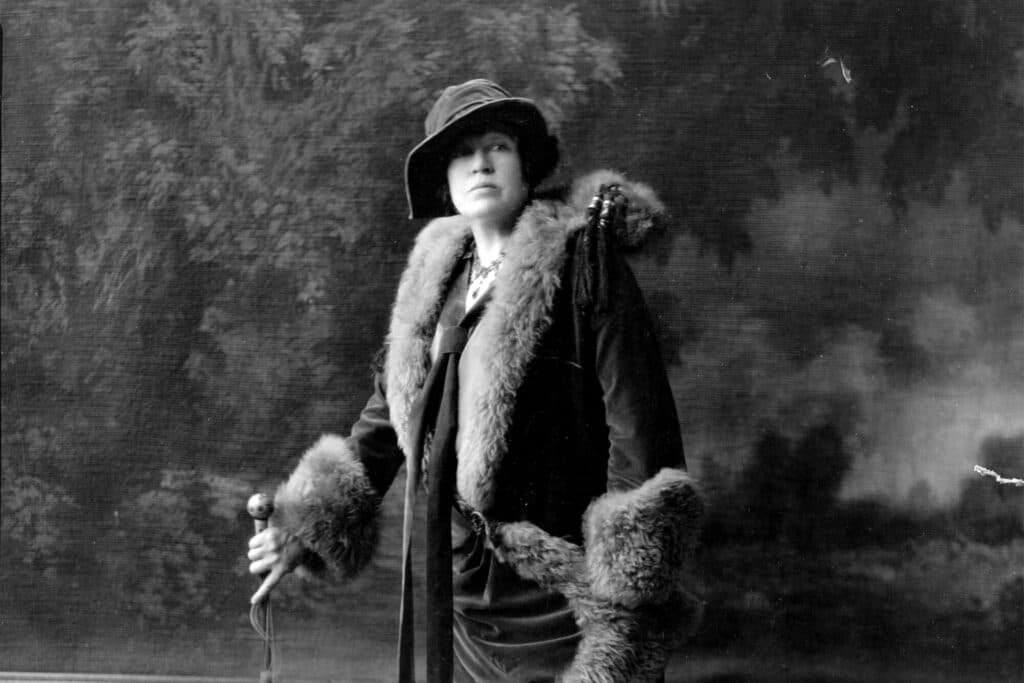
Warner: Does she talk back?
Benziger: (laughs) Believe it or not, but my great-grandfather's the one who comes through. I sat in Grandpa Jim's room, sat in his rocker, and I started talking to him. And I felt like someone was there. And I was really not happy about it. I froze. I was a little frightened, and I said, “Grandpa Jim, you need to go. I'm scared to death." And all of a sudden, that whole feeling just lifted. It was amazing.
Warner: What's something you've learned more recently about Margaret?
Benziger: I learned yesterday that she played the guitar. I knew she played piano like Van Cliburn. She was so accomplished. She spoke five languages fluently and she ran for the Senate eight years before women had the right to vote. She actually was one of the founders of the Denver Dumb Friends League [now Humane Colorado].
Warner: She also was an advocate for an early iteration of juvenile justice.
Benziger: She and Judge Ben Lindsey absolutely redid the whole justice system in this country so that young boys weren't put in prison with grown men. What a thing to do.
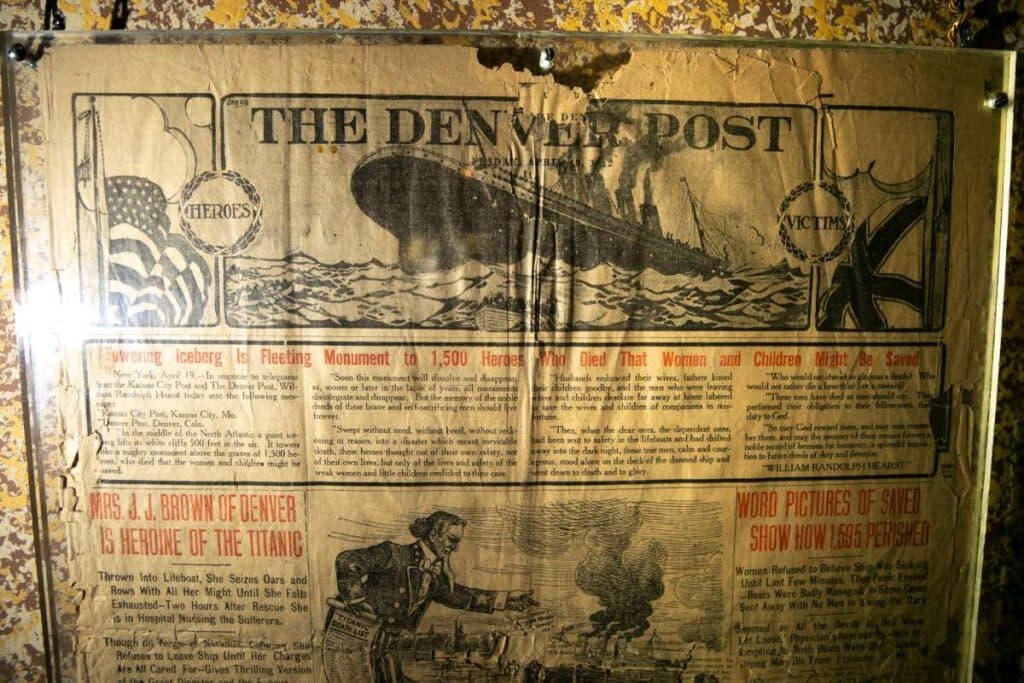
Warner: I want to explore this idea that Margaret Brown would've stayed longer on the Titanic. What is this based on?
Benziger: It is based on what she told the family when she got back. She was walking along the railing of the ship as it was going down. She was trying to convince women to get in the lifeboats because they wanted to stay with their husbands. And they were being told, "Oh, don't worry, you'll be out there for 30 minutes and you'll come back. It's just a precaution." And they weren't buying it, and said, "Why aren't you coming with me if it's just a drill?"
So she [Molly] was convincing them to get in the lifeboats. As she walked along, she reached lifeboat number six and two officers came up behind her, lifted her up, turned her around, and dropped her six feet in the lifeboat, saying, "You're going too, lady."
She really believed that if women wanted the same rights as men, that they ought to darn well step up and take responsibility. And when these women got to New York without their husbands, they had no money, they had no job, they had no place to stay. And what are they going to do? If they had had their husbands, there would've been a chance. They could have gone west. They could have stayed there and made a life. But without a husband in those days, they were destined to live as a maid or a waitress, and live in abject poverty for the rest of their lives.
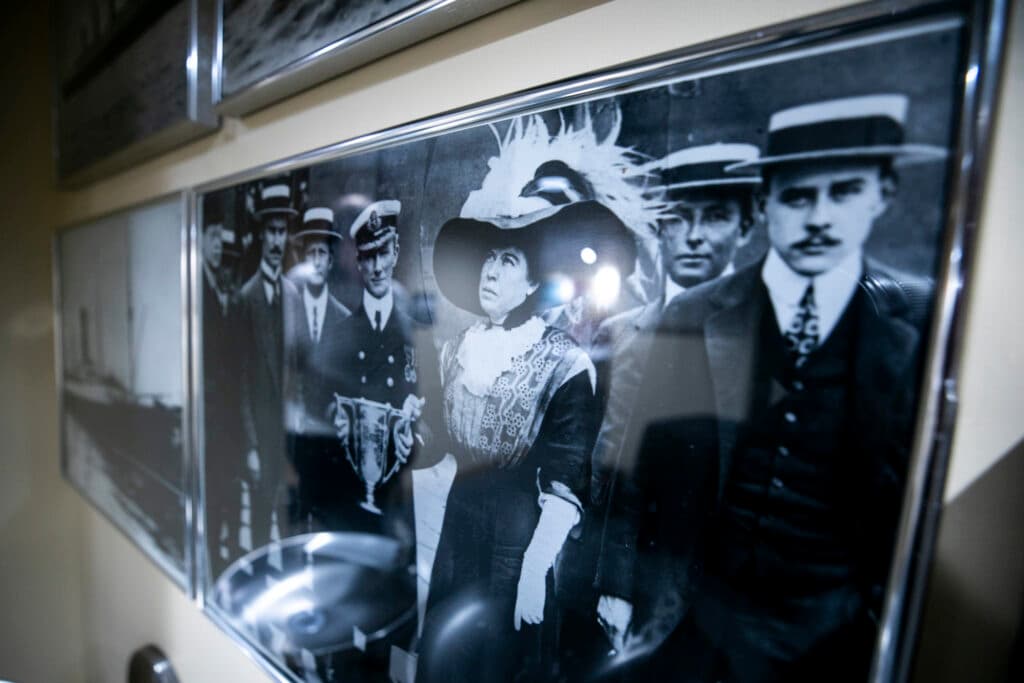
Warner: Right now, at the Molly Brown House Museum is a show called See Justice Done: The Legacy of the Titanic Survivors' Committee, and obviously, Margaret Brown was pivotal in this.
Benziger: She was the head of the Survivors Committee, and she was until she died.
Warner: Why do you think that she felt such a passion for other survivors for so long?
Benziger: It was the empathy. She really tuned into people’s suffering and their problems and trials and did what she could to help them out of it.
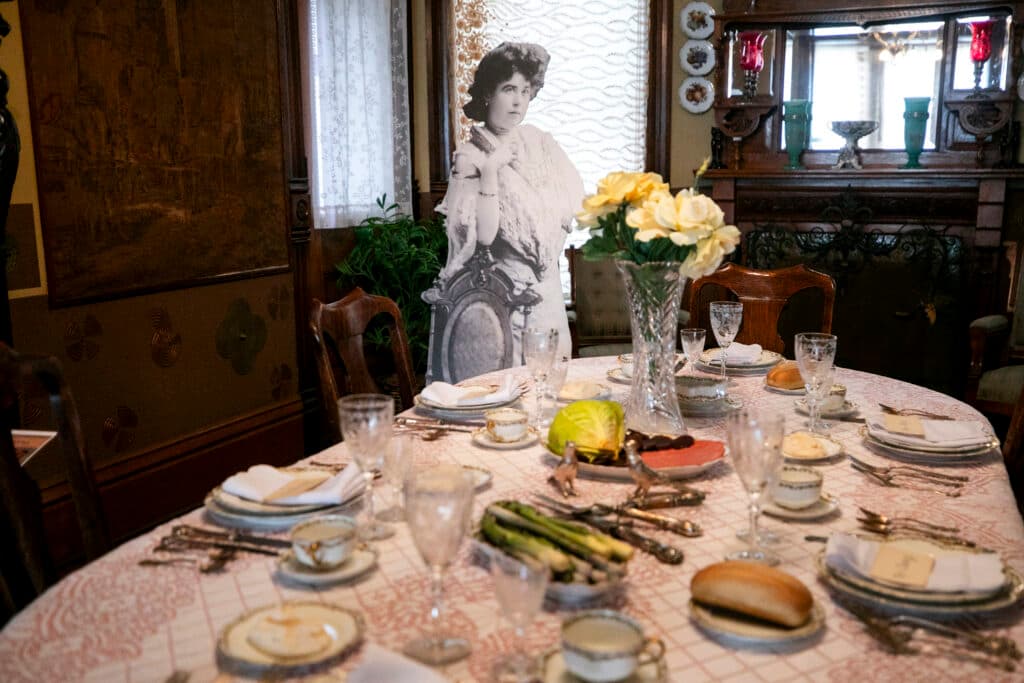
Warner: Do you think that being a historian of Molly Brown, but also being related to her, gives you rose-colored glasses?
Benziger: Not at all. I've never worn rose-colored glasses (laughs) in my life. Not to drop names or anything, but I, when I was having a drink with James Cameron (director of the film, “Titanic”), he asked me what I thought about Margaret in the movie. I told him that if I had that big a budget for a movie, I also would give them the Margaret they do rather than the true Margaret. Because if they had put her up as herself, nobody would've recognized her.
Warner: How so?
Benziger: She was portrayed on the ship as being loud and boisterous. "Those bags aren't gonna walk themselves," you know, it just wasn't her. She was refined, she was elegant. She could hold herself in any conversation. And she was by no means a hillbilly.






